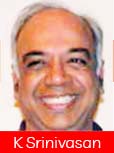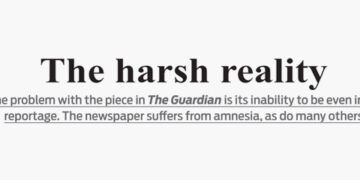 ON May 21, 2002, “two masked men wearing police uniforms fatally shot a Muslim separatist leader who advocated a conciliatory approach to resolving the long-running dispute over Kashmir that has brought India and Pakistan to the brink of war.’’ That was in The Washington Post.
ON May 21, 2002, “two masked men wearing police uniforms fatally shot a Muslim separatist leader who advocated a conciliatory approach to resolving the long-running dispute over Kashmir that has brought India and Pakistan to the brink of war.’’ That was in The Washington Post.
The leader in question was Abdul Ghani Lone, at that time a senior leader of the All Parties Hurriyat Conference. As the Post noted,’’ Unlike other members of the conference, Lone favoured dialogue with India, supported a ceasefire and objected to the participation of fighters from Pakistan in the separatist campaign – positions that earned him the ire of hard-line militant organizations.’’ No wonder, he was gunned down.
The Mirwaiz murder
Cut to May 22, 2023. The Indian Express reported that thirty-three years after unidentified militants barged into Mirwaiz Mohammad Farooq’s home at Srinagar’s Nageen area and shot him dead, the Jammu and Kashmir Police claim to have arrested two people suspected to have been involved in the murder. Police said the accused had been evading arrest for the last three decades. Mirwaiz Farooq, father of Hurriyat Chairman Mirwaiz Umar Farooq, was killed on May 21, 1990.
The police statement added: “The two had gone underground and during these years were variously hiding in Nepal and Pakistan, among other places, before surreptitiously returning to Kashmir a few years ago.” No surprise, Mirwaiz Mohammad Farooq was gunned down. He too was a moderate.
Geelani eulogised
The hardliners had no such problem. The best example is Syed Ali Shah Geelani, who was eulogised all his life, by the Pakistani establishment, as a towering freedom fighter on a par with the likes of Nelson Mandela. It is the Indian State that protected him and offered him the best possible medical care when he was ill with cancer so that he could get better and more energetic to abuse the State with all his strength. And he had no compunction in doing that. Or in giving his aashirwad to the stone-pelters of the Valley who were paid by the number of stones they threw at the police and the Army.
It is well known that Lone and the Mirwaiz were gunned down by pro-Pakistani militants simply because they were moderate and advocated dialogue and accommodation with the State. It was unpalatable to the militants and their handlers across the border that the duo spoke of reconciliation and accommodation. Deed done they fled across the border and bid their time.
Uneven reporting
The problem with the piece in The Guardian (Indian government ordered killings in Pakistan, intelligence officials claim, April 4, 2024) is not their over-dependence on the Pakistani dossier on the mysterious killings of terrorists in their country, or their quoting of unnamed RAW officials, but its inability to be even in its reportage. Their report claims that Pakistan has warned over a dozen others to go underground for fear of more hits. They need to vamoose because the blood they spilt for decades is now being accounted for. And why is Pakistan not acting against them?
The Americans gunned down Osama Bin Laden in Abbottabad (a stone’s throw from the Pakistan Military Academy in Kakul) with the Pakistani establishment getting to know only when the world’s most notorious terrorist had been killed. They weren’t giving an advance thumbs up because the Americans didn’t trust them. The Guardian offers no context to its piece. The newspaper suffers from amnesia, as do many others.
The last resort
When the State fails to reign in the nonstate actors, those from outside the State will inevitably get into the act. It isn’t very pleasant, it cannot be condoned, but that is the harsh reality – from kidnapping and putting individuals on trial to targeted killings, history, at least since World War II, is replete with examples of such incidents. In most cases, States were left with no other option. It was and is an act of last resort.
















